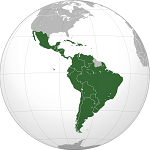 by Kyong Mazzaro
by Kyong Mazzaro The consequences of the 2007 financial downturn are still being felt worldwide. An example is the European Union Debt Crisis, which began in 2009 in Greece and has now reached Italy, Spain, France, Portugal, Britain, Ireland, and Cyprus. Throughout the downturn, European governments have found themselves not only in the position of implementing a series of difficult policies, including harsh austerity measures, but also of facing episodes of domestic conflict that seem triggered by the policies. Although the link between social conflict and economic crises has been studied, its underlying mechanisms are not well understood.
Take the role of the International Monetary Fund (IMF). In the context of this and past economic crises, the IMF has been central: it alone has provided governments with financial resources through multi-million dollar bailouts, and is one of the main forces behind pressures to stabilize debt and promote economic growth worldwide during the current crisis. Through the IMF mechanism, governments are the recipients of financial resources in exchange for a firm commitment to correct macroeconomic imbalances in the form of policy reforms. The reach of the reforms have often been a subject of interest among researchers and policy-makers, as they often involve cuts in social services such as housing, health care, education, and government jobs, which can be thought to motivate civil action. But is there a real connection between the way IMF programs are implemented and the increase of civil unrest?
A recent study looking at IMF-sponsored programs and contentious collective action in Latin America by Ortiz and Béjar may contribute to the deeper understanding of the phenomenon. Latin America happens to be the region where the IMF has historically been very active, and also an area prone to macroeconomic volatility and economic crises. The researchers looked at 17 countries from 1980 to 2007, a period that was witness to considerable unrest, including the 2000 Argentinean general strike that paralyzed more than 15,000 workers, and protests in Bolivia, Ecuador, Mexico, Nicaragua, and Venezuela among others. They also looked at the annual number of politically motivated riots, demonstrations, and strikes that took place in that period, hypothesizing that the economic grievances generated by the policies could have had an effect on contentious collective action.
Controlling for factors such as economic growth, inflation, trade openness, ethnic fractionalization, and others, they found that the likelihood of contentious collective action increased by 38% when countries signed agreements with the IMF. Results showed that the probability of strikes significantly increased by 30% whereas the likelihood of riots significantly increased by 14%. These results were linked to the idea that by implementing the measures of the IMF, governments were perceived as weak and illegitimate by their constituencies, which in exchange negatively influenced the levels of civil unrest in their countries.
These findings provide insight into the question of how the participation of assistance programs that put governments in the position of adopting radical economic policies can feed internal conflict and even hamper stability and democratic institutions. Although Ortiz and Béjar focused exclusively on Latin America in their study, it is inevitable to notice similarities between that case and others around the world. Especially as thousands of Greek municipal workers are holding strikes, and thousands of Portuguese are demonstrating against the austerity measures that came tied to the IMF’s financial support, getting to the point of demanding the resignation of their government.
Ortiz, D. G., & Béjar, S. (2013). Participation in IMF-sponsored economic programs and contentious collective action in Latin America, 1980–2007.Conflict Management and Peace Science, 30(5), 492-515.